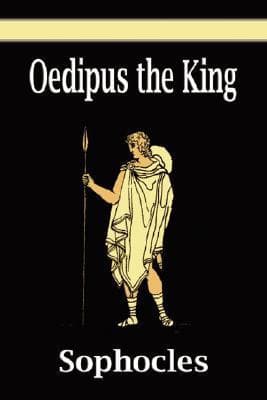
Book Review Summary: Oedipus the King
Introduction
"Oedipus the King" is a timeless tragedy written by the ancient Greek playwright Sophocles. The story revolves around the life of Oedipus, a man who unknowingly kills his father and marries his mother, fulfilling a prophecy that has haunted him since birth. This article will delve into the book's summary, author information, analysis of views, and reasons for recommendation.
About Sophocles
Sophocles (c. 496 BC) was a renowned Greek tragedy playwright from Athens. He wrote over one hundred and twenty-three plays, of which few are extant. One of his most celebrated works is "Oedipus the King." Sophocles' plays explore the depths of human nature and delve into themes such as fate, destiny, and the consequences of one's actions.
Analysis of Views
- Engaging Characters: Readers praise the well-developed characters in "Oedipus the King." Oedipus, the protagonist, is particularly well-received for his compelling journey and the evolution of his character throughout the play. The other characters, including Jocasta and Creon, also leave a lasting impression on readers.
- Exciting Plot: The plot of the play is considered exciting and engaging. It includes revelations that keep readers on edge and build tension throughout the story. The climax, where Oedipus discovers his true identity and the tragic events that follow, is particularly impactful.
- Themes of Fate and Free Will: Sophocles explores the complex relationship between fate and free will in "Oedipus the King." Readers appreciate the way the play raises questions about whether individuals have control over their own destiny or if there are forces beyond their control that shape their lives.
- Psychological Depth: The play delves into the psychological aspects of its characters, exploring their motivations, desires, and fears. Readers find it fascinating to witness Oedipus's journey from ignorance to self-discovery and the impact it has on his actions and relationships.
- Classic Literary Value: "Oedipus the King" is considered a classic work of literature that continues to resonate with readers today. It is praised for its timeless themes, well-crafted language, and its ability to evoke emotions and provoke thought.
Reasons for Recommendation
- Intriguing Storytelling: The story of "Oedipus the King" is captivating from start to finish. The plot twists, revelations, and character development keep readers engaged and invested in the outcome.
- Thought-Provoking Themes: The exploration of themes such as fate, free will, and psychological depth adds depth and complexity to the play. Readers appreciate the opportunity to ponder these ideas and reflect on their own lives and beliefs.
- Classic Literary Merit: As a classic work of literature, "Oedipus the King" carries a certain weight in literary circles. Its enduring value and reputation make it a must-read for those interested in understanding the roots of Western literature and its impact on contemporary literature.
- Emotional Impact: The play evokes strong emotions in readers, from shock and horror at the revelations to empathy for Oedipus's plight. The emotional resonance of the story makes it a powerful and memorable reading experience.
Conclusion
"Oedipus the King" by Sophocles is a timeless tragedy that continues to captivate readers with its intriguing storytelling, thought-provoking themes, and emotional impact. The play explores complex issues related to fate, free will, and human nature, making it a classic work of literature that stands the test of time. Whether you are a fan of Greek tragedies or simply seeking an engaging read, "Oedipus the King" offers a compelling journey into the depths of human existence.